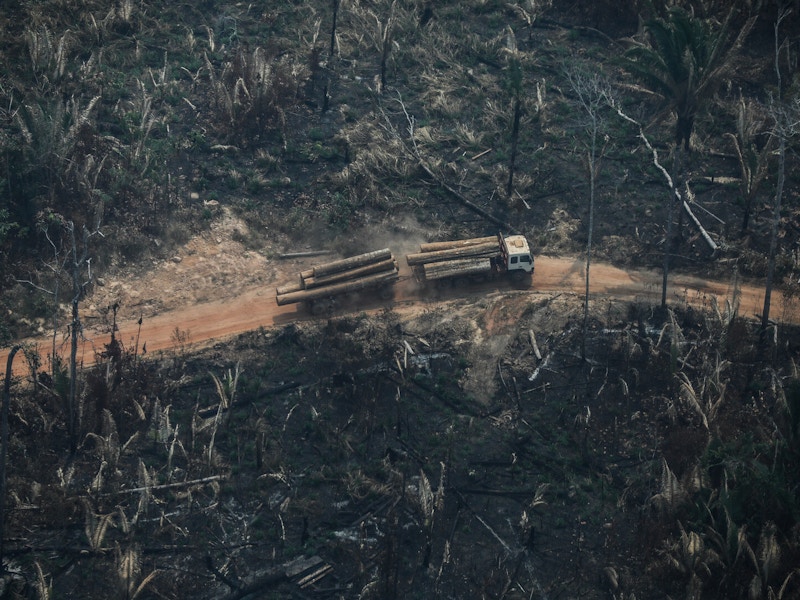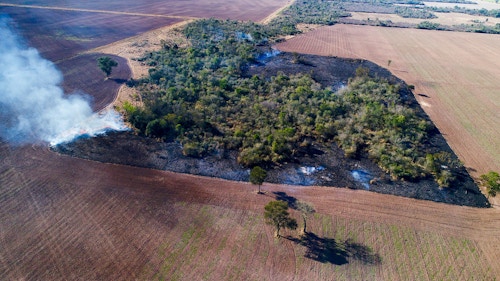
Upcoming general election in Brazil:
The fate of the rainforest, indigenous rights, and democracy in the balance
Under the Bolsonaro government, deforestation has accelerated while indigenous rights and basic democratic principles have been systematically eroded. The upcoming general election will likely decide the fate of the Amazon rainforest and Brazilian civil society.
The past three and a half years have been brutal for the Amazon rainforest and Brazil’s indigenous peoples. Deforestation has soared, and there’s been a catastrophic increase in violence, threats and murder of indigenous peoples and environmental activists.
“We have seen a systematic erosion of crucial institutions and democratic processes in Brazil – especially those created to protect the rainforests and secure indigenous rights,” says Tørris Jeger, secretary general in Rainforest Foundation Norway.
In October, Brazilians will head to the polls to elect a president and a new national assembly. The outcome may likely decide the fate of both the Amazon rainforest and Brazilian civil society.
“History shows us that Brazil has the political will and capacity to stop deforestation, protect indigenous peoples and strengthen democracy. Now we all depend on Brazil choosing the right path forward,” he says.
Brazil under Bolsonarao
- Deforestation has increased by 50 percent between 2019 and 2022 compared with the previous three-year-period.
- Violence against activists and indigenous peoples has surged. If the Brazilian Amazon was an independent country, it would now rank 4th on the world’s murder statistics.
- Public institutions with a mandate to protect the rainforests and indigenous peoples have had their budgets slashed, and employees have been replaced with military personnel.
- Several laws weakening the legal status of the rainforest and indigenous peoples have been introduced in congress.
- The Bolsonaro government has systematically and publicly undermined trust in the supreme court and election authorities. It is now feared that he will refuse to accept an election loss.
From environmental champion to ecological catastrophe
The Amazon rainforest stores more CO2 than the rest of the world emits in two years. Every tree that is lost creates new emissions that makes it harder to reach the targets in the Paris agreement. And scientists have long warned that the rainforest is heading towards tipping points resulting in the eventual collapse of parts of the forest’s ecosystem.
If the Brazilian rainforests disappears, so does the hope of avoiding a global climate catastrophe.
Until recently, Brazil served as an example of environmental stewardship done right. In the decades of the early 2000s, the country managed to reduce deforestation by 80 per cent.



Deforestation in the Brazilian Amazon has increased in a tempo not seen for decades. Unless this trend is rapidly reversed, the rainforest may head towards ecological collapse.
But now that trend has completely reversed. Deforestation has soared since Jair Bolsonaro assumed office in 2019. In the first seven months of 2022 alone, five and half thousand square kilometres of the Amazon rainforest was lost – an area seven times the size of New York City. This august also saw more forest fires than any other august over the past 12 years.
Democratic erosion
This calamity is a direct result of deliberate policies. Federal institutions like the environmental protection agency (Ibama), the department of indigenous affairs (Funai) and the satellite monitoring agency (INPE) have had their budgets drastically reduced, while key employees have been replaced by Bolsonaro loyalists from the military. And the president himself has repeatedly expressed tacit support for illegal logging in the Amazon.
At the same time, life has become increasingly difficult for those standing up for the rainforest and indigenous rights.
“We’ve seen a marked increase in threats, violence and murders towards indigenous peoples, local communities, and environmental activists. The murders of the British journalist Dom Philips and the anthropologist Bruno Pereira, which sent shockwaves through the international community, is regrettably just one of many tragedies,” Jæger of RFN says.
The public attacks on environmental institutions and defenders have been paralleled by attacks on key democratic institutions like the supreme court, electoral courts and voting authorities.
“There’s a direct link between the erosion of environmental governance in Brazil and the increased threat to its democracy,” Jæger says. “Brazil needs independent, transparent institutions.”

Sonia Guajajara is one of many indigenous women on the election ballots this year.
Change is possible
However, the October elections presents an opportunity to change course. Both the rainforest and indigenous rights have become central issues in the election campaign. And compared to the last general election, this election will see a 36 per cent increase in indigenous candidates, a lot of them women, standing for office.
“This indigenous mobilization may represent a sea change in Brazilian politics,” Jæger explains.
Additionally, a petition to defend democracy has been signed by over 1 million Brazilians and unions representing 60 million Brazilian workers. The Supreme Court has also recently arrived at several verdicts reaffirming environmental and indigenous rights, with similar verdicts being expected over the coming months.
“All this gives me faith that Brazil can rebuild good policies,” Jæger comments.
The international community must step up
Should the Brazilian electorate decide to oust Bolsonaro, any new government will nevertheless face significant challenges. A new course will also depend heavily on factors beyond the country’s own borders.
“To stop the rampant deforestation and violence, the international community must change the way it relates to Brazil. Companies operating in or importing goods from Brazil have a particular responsibility,” Jæger states.
For example, Brazil is currently in a process of gaining OECD membership. The OECD and its member countries must make membership contingent on reduced deforestation and the rebuilding of indigenous rights and democratic institutions.
“It boils down to this: we must stop doing business with corporations contributing to deforestation. We need both national and international legislation to prevent the import of goods linked to deforestation, which the EU is currently devising,” Jæger concludes.

Tørris Jæger
Executive Director
(+47) 476 55 132
toerris@rainforest.no